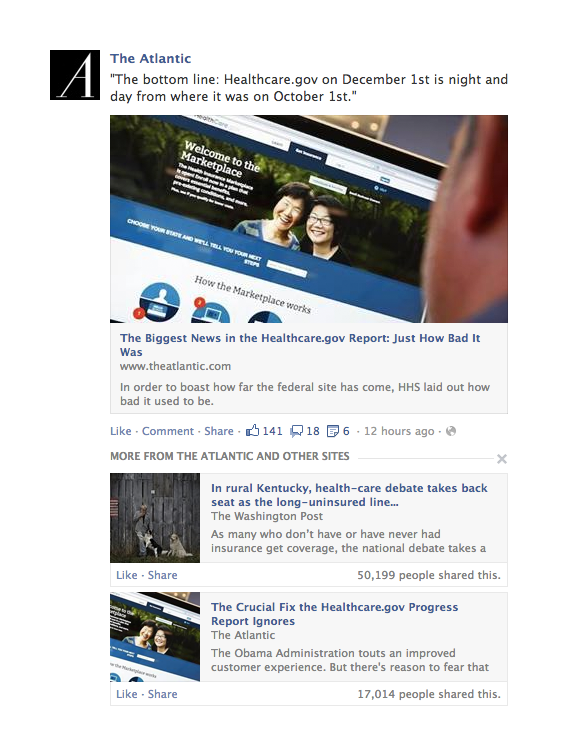Facebook tweaks News Feed to share 'high quality articles' more than memes
Changes should be good news for news outlets, driving more interested traffic to their sites

Your support helps us to tell the story
From reproductive rights to climate change to Big Tech, The Independent is on the ground when the story is developing. Whether it's investigating the financials of Elon Musk's pro-Trump PAC or producing our latest documentary, 'The A Word', which shines a light on the American women fighting for reproductive rights, we know how important it is to parse out the facts from the messaging.
At such a critical moment in US history, we need reporters on the ground. Your donation allows us to keep sending journalists to speak to both sides of the story.
The Independent is trusted by Americans across the entire political spectrum. And unlike many other quality news outlets, we choose not to lock Americans out of our reporting and analysis with paywalls. We believe quality journalism should be available to everyone, paid for by those who can afford it.
Your support makes all the difference.Facebook is changing the way its News Feed algorithms sort shared content in order to better promote high quality content.
“Starting soon, we’ll be doing a better job of distinguishing between a high quality article on a website versus a meme photo hosted somewhere other than Facebook,” said the social networking site on their official blog.
“This means that high quality articles you or others read may show up a bit more prominently in your News Feed, and meme photos may show up a bit less prominently.”
The tweaks will also display more related articles from given publishers after users have clicked on their content, and will “re-surface” older shared content if it receives new comments.
“Our testing has shown that doing this in moderation for just a small number of stories can lead to more conversations between people and their friends on all types of content,” said Facebook.
Facebook has been experimenting with changes to their News Feed algorithm for several months now, and online publishers have been reported ‘unprecedented’ levels of traffic since August.
In a recent post, the social media site noted that “average referral traffic from Facebook to media sites has increased by over 170% throughout the past year.”
“In fact, from September 2012 to September 2013, TIME's referral traffic has increased 208%. BuzzFeed is up 855%. And Bleacher Report [a US sport’s site] has increased 1081%.”
Hopefully these changes will be good news for both the public and publishers – directing individuals to quality content that interests them whilst boosting stats for websites, still struggling to cope with the loss of print revenue.

Join our commenting forum
Join thought-provoking conversations, follow other Independent readers and see their replies
Comments